#Sustainable Cooling.
Explore tagged Tumblr posts
Text
Smart AC Solutions for Modern Living

As urbanization and technological advancements continue to shape our living environments, the need for efficient and smart air conditioning solutions has never been more crucial. We stand out as the premieraircon supplier in Cebu, Philippines, offering innovative and energy-efficient systems designed to meet the demands of modern living. Our range of smart AC units ensures optimal comfort and energy savings, making them an ideal choice for contemporary households and businesses.
Learn More:https://www.generalroyal.com.ph/smart-ac-solutions-for-modern-living
0 notes
Text
i don’t remember if i ever shared this here, but a while ago i posted a little twitter thread about bats and gas station snacks and some very talented podficcers made a podfic of it! 🎧
[podfic] Jersey Vigilantes Don't Pump Gas by isweedan & reena_jenkins
original thread (text under the cut):
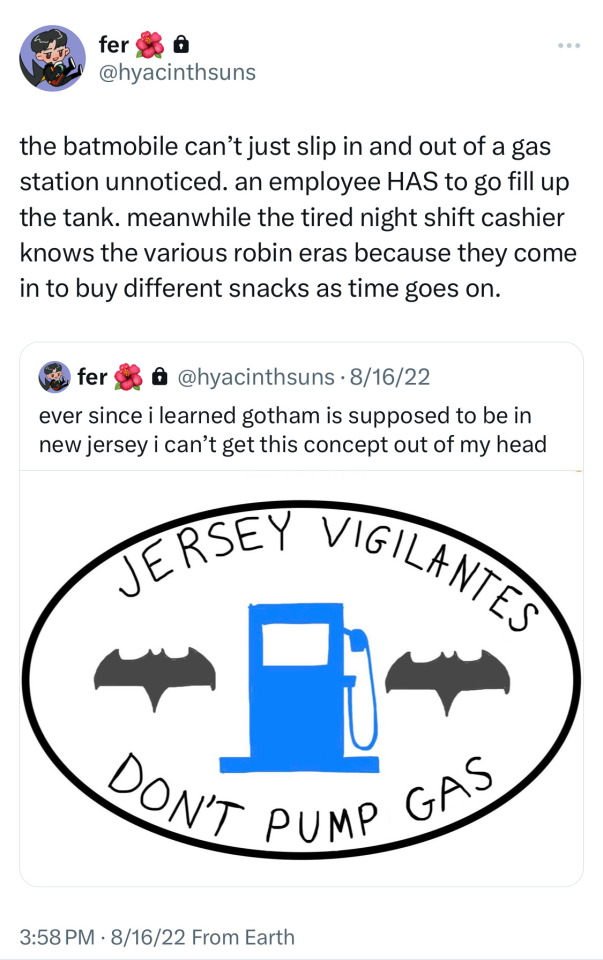
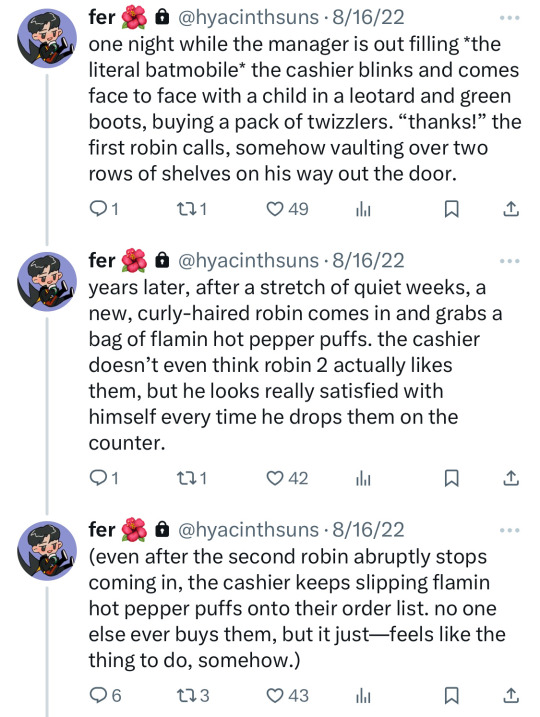
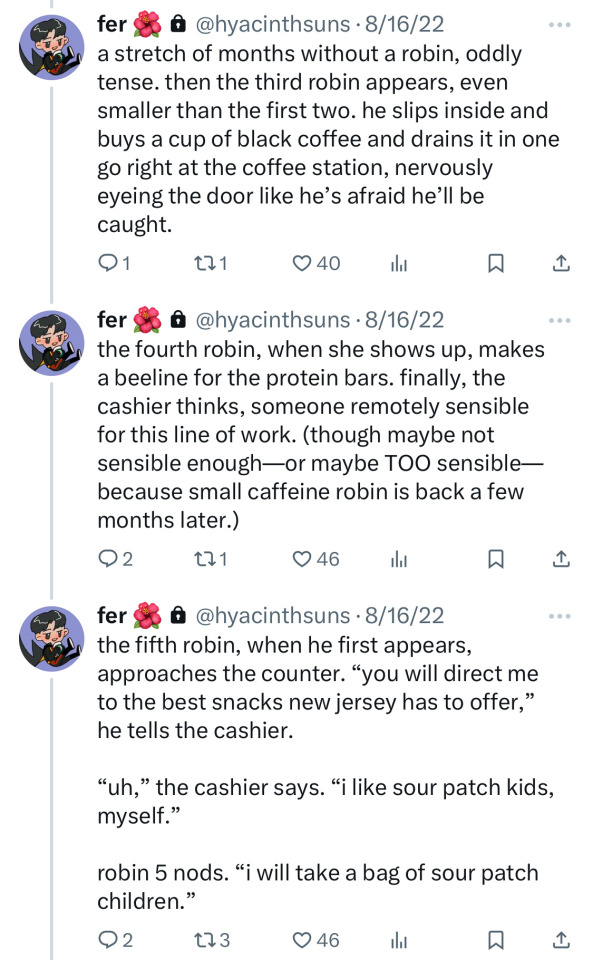
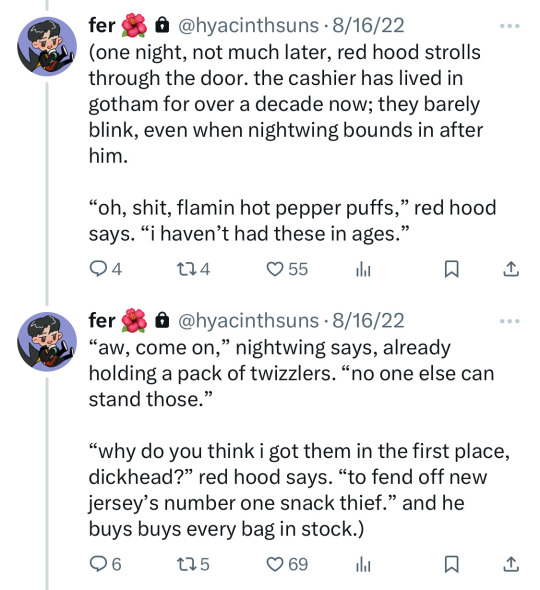
nested tweet reading: ever since i learned gotham is supposed to be in new jersey i can’t get this concept out of my head: [a badly drawn bumper sticker that says “jersey vigilantes don’t pump gas”] / quote tweet reading: the batmobile can’t just slip in and out of a gas station unnoticed. an employee HAS to go fill up the tank. meanwhile the tired night shift cashier knows the various robin eras because they come in to buy different snacks as time goes on.
one night while the manager is out filling *the literal batmobile* the cashier blinks and comes face to face with a child in a leotard and green boots, buying a pack of twizzlers. “thanks!” the first robin calls, somehow vaulting over two rows of shelves on his way out the door.
years later, after a stretch of quiet weeks, a new, curly-haired robin comes in and grabs a bag of flamin hot pepper puffs. the cashier doesn’t even think robin 2 actually likes them, but he looks really satisfied with himself every time he drops them on the counter.
(even after the second robin abruptly stops coming in, the cashier keeps slipping flamin hot pepper puffs onto their order list. no one else ever buys them, but it just—feels like the thing to do, somehow.)
a stretch of months without a robin, oddly tense. then the third robin appears, even smaller than the first two. he slips inside and buys a cup of black coffee and drains it in one go right at the coffee station, nervously eyeing the door like he’s afraid he’ll be caught.
the fourth robin, when she shows up, makes a beeline for the protein bars. finally, the cashier thinks, someone remotely sensible for this line of work. (though maybe not sensible enough—or maybe TOO sensible—because small caffeine robin is back a few months later.)
the fifth robin, when he first appears, approaches the counter. “you will direct me to the best snacks new jersey has to offer,” he tells the cashier.
“uh,” the cashier says. “i like sour patch kids, myself.”
robin 5 nods. “i will take a bag of sour patch children.”
(one night, not much later, red hood strolls through the door. the cashier has lived in gotham for over a decade now; they barely blink, even when nightwing bounds in after him.
“oh, shit, flamin hot pepper puffs,” red hood says. “i haven’t had these in ages.”
“aw, come on,” nightwing says, already holding a pack of twizzlers. “no one else can stand those.”
“why do you think i got them in the first place, dickhead?” red hood says. “to fend off new jersey’s number one snack thief.” and he buys buys every bag in stock.)
#feat. my own terrible art drawn in the notes app of a decade-old ipad#the joke being that you can’t pump your own gas in new jersey#which i’m sure has been joked about plenty before#anyway the podfic is a delight and every once in a while i remember about it and re-listen for a giggle#batfam#my fic#OBVIOUSLY BRUCE HAS HIS OWN GAS PUMP IN THE CAVE#or the batmobile runs on solar (because it’s sustainable and discreet NOT because superman thinks that’s cool)#but: imagine.
1K notes
·
View notes
Text
things that don’t make you punk:
❌ cool jacket
❌ music taste
❌ politics
things that DO make you punk:
✅ having passionate opinions on how much “vegan leather” SUCKSSSSSSSSS
#punk#diy punk#alt#alternative#greenwashing#sustainable fashion#i’m joking btw. yes music taste yes politics and sure why not cool jacket
176 notes
·
View notes
Text
Every once in a while I’ll see some posts about everyone should become vegan in order to help the environment. And that… sounds kinda rude. I’m sure they don’t mean to come off that way but like, humans are omnivores. Yes there are people who won’t have any animal products be it meat or otherwise either due to personal beliefs or because their body physically cannot handle it, and that’s okay! You don’t have to change your diet to include those products if you don’t want to or you physically can’t.
But there’s indigenous communities that hunt and farm animals sustainably and have been doing so for generations. And these animals are a primary source of food for them. Look to the bison of North America. The settlers nearly caused an extinction as a part of a genocide. Because once the Bison were gone it caused an even sharper decline of the indigenous population. Now thankfully Bison did not go extinct and are actively being shared with other groups across America.
Now if we look outside of indigenous communities we have people who are doing sustainable farming as well as hunting. We have hunting seasons for a reason, mostly because we killed a lot of the predators. As any hunter and they will tell you how bad the deer population can get. (Also America has this whole thing about bird feathers and bird hunting, like it was bad until they laid down some laws. People went absolutely nuts on having feathers be a part of fashion like holy cow.)
We’re slowly getting better with having gardens and vertical farms within cities, and there’s some laws on being able to have a chicken or two at your house or what-have-you in the city for some eggs. (Or maybe some quails since they’re smaller than chickens it’s something that you’d might have to check in your area.) Maybe you would be able to raise some honey bees or rent them out because each honey tastes different from different plants. But ultimately when it comes to meat or cheese? Go to your local farmers. Go to farmers markets, meet with the people there, become friends, go actively check out their farm. See how the animal lives are and if the farmer is willing, talk to them about sustainable agriculture. See what they can change if they’re willing. Support indigenous communities and buy their food and products, especially if you’re close enough that the food won’t spoil on its way to you. (Like imagine living in Texas and you want whale meat from Alaska and you buy it from an indigenous community. I would imagine that would be pretty hard to get.)
Either way everything dies in the end. Do we shame scavengers for eating corpses they found before it could rot and spread disease? Do we shame the animals that hunt other animals to survive? Yes factory farming should no longer exist. So let’s give the animals the best life we can give them. If there’s babies born that the farmer doesn’t want, give them away to someone who wants them as a pet. Or someone who wants to raise them for something else. Not everyone can raise animals for their meat. I know I can’t I would get to emotionally attached. I’d only be able to raise them for their eggs and milk.
Yeah this was pretty much thrown together, and I just wanted to say my thoughts and throw them into the void. If you have some examples of sustainable farming/agriculture, please share them because while I got some stuff I posted from YouTube, I’m still interested to see what stuff I might’ve missed!
#solarpunk#farming#hunting#agriculture#sustainability#sustainable farming#sustainable agriculture#like Rewilding farm land is pretty interesting and trying to replicate an ecosystem with farm animals but also allowing wild animals#to make homes in the rewild farm land is pretty cool#and I have an absolute love for food/garden forests#and hydroponics have shown to be really great for communities in the winter time and they want to have fresh produce#all sorts of cool stuff
943 notes
·
View notes
Text
Good News - May 22-28
Like these weekly compilations? Support me on Ko-fi or $Kaybarr1735! Also, if you tip me on Ko-fi or CashApp (and give me some way to contact you if it doesn’t automatically), at the end of the month I'll send you a link to all of the articles I found but didn't use each week - almost double the content!
1. Scientists Invent Healthier More Sustainable Chocolate
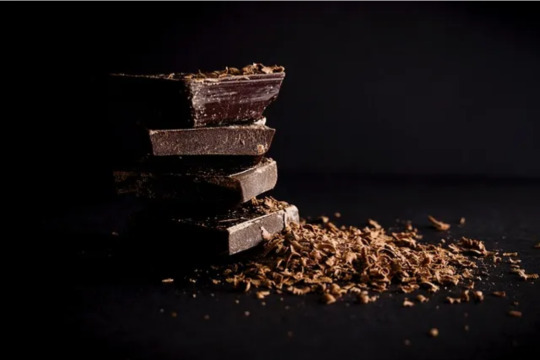
“The new chocolate recipe from researchers at ETH Zurich uses more materials from the cocoa pod that are usually discarded, including more of the pulp as well as the inner lining of the husk, known as the endocarp. […] The resulting chocolate also [was “deliciously sweet” and] had 20% more fibre and 30 percent less saturated fat than average European dark chocolate[, and] it could enable cocoa farmers [to] earn more from their crops.”
2. Vermont Is Coming for Big Oil, Making It Pay for Decades of Climate Pollution
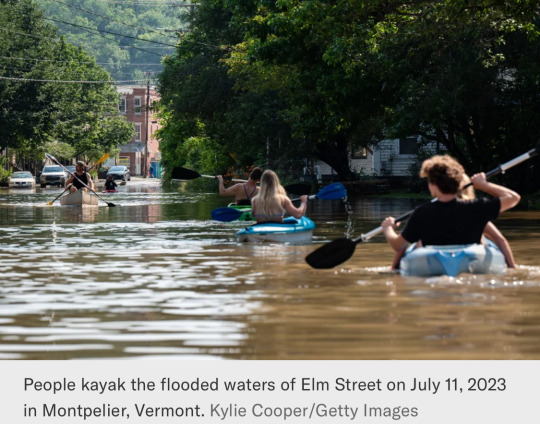
“Legislators in Montpelier are on the brink of enacting the "Climate Superfund Act," modeled after the federal Superfund law, that seeks to make oil, gas and coal companies pay for damages linked to historical greenhouse gas emissions. […] Companies would be held liable for the costs associated with […] floods and heat waves, along with losses to biodiversity, safety, economic development and anything else the treasurer deems reasonable[, that were caused by their emissions].”
3. Important bird habitat now protected in the Rocky Mountain Trench
“Grassland-reliant species in the Rocky Mountain Trench now have more protected habitat thanks to a new [270-hectare] conservation area near Cranbrook. […] About one-third of the Skookumchuck Prairie Conservation Area is forested[…,] Most of the site is a dry grassland[…, and] Three hectares of wetlands add to the landscape diversity and offer crucial benefits to wildlife and water systems in the area. This conservation gem also provides habitat for endangered American badger and excellent winter range for elk, mule deer and white-tailed deer.”
4. Lemur Week marked by 70th breeding success
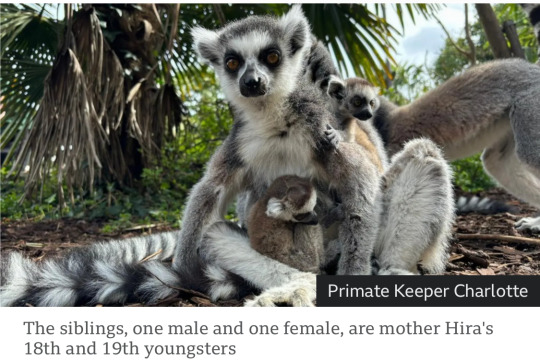
“A wildlife park has celebrated its 70th lemur breeding success ahead of a week raising money to help save the endangered primates. […] The park's open-air Madagascar exhibit is home to 31 free-roaming lemurs and was officially opened in 2008. […] Females are only sexually receptive for just one or two days a year, leaving a small window of opportunity for males to father offspring. […] The two playful siblings, one female and one male, were born to father Bernard and mother Hira.”
5. Innovative material for sustainable building
“Researchers introduce a polymer-based material with unique properties. This material allows sunlight to enter, maintains a more comfortable indoor climate without additional energy, and cleans itself like a lotus leaf. The new development could replace glass components in walls and roofs in the future.”
6. Isle of Wight eagles don't pose threat to lambs as feared
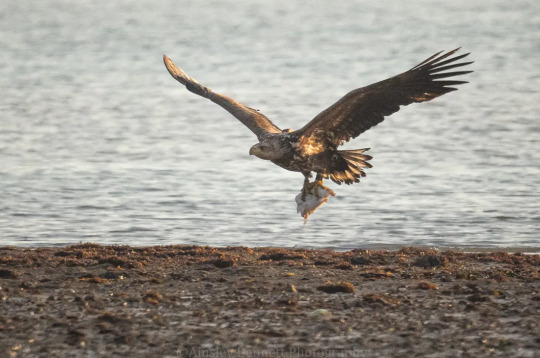
“While there had previously been fears that the eagles would feed on livestock, such as lambs, the project has found no evidence of this. [… “W]hite-tailed eagles effectively steal meals from other predatory birds[, which is] a really important ecological role that had been lost within the landscape and is being restored.” [… The birds’] population was boosted by a chick last year – the first time the species has bred in England in 240 years.”
7. Breakthrough discovery uses engineered surfaces to shed heat
“Cheng's team has found a way to lower the starting point of the [Leidenfrost] effect by producing a surface covered with micropillars. […] The discovery has great potential in heat transfer applications such as the cooling of industrial machines and surface fouling cleaning for heat exchangers. It also could help prevent damage and even disaster to nuclear machinery.”
8. New malaria vaccine delivered for the first time

“A total of 43,000 doses arrived by air today from UNICEF, and another 120,000 are scheduled to show up in the coming days. […] They're the first vaccines designed to work against a human parasite. […] Across four African countries, these trials showed a 75% reduction in malaria cases in the year following vaccination of young children. […] The Serum Institute of India, who will be manufacturing the new vaccine, says a hundred million doses will likely be available to countries by the middle of next year.”
9. Urban gardening may improve human health: Microbial exposure boosts immune system
“"One month of urban indoor gardening boosted the diversity of bacteria on the skin of the subjects and was associated with higher levels of anti-inflammatory cytokines in the blood. The group studied used a growing medium with high microbial diversity emulating the forest soil," [… whereas] the control group used a microbially poor peat-based medium. [… N]o changes in the blood or the skin microbiota were seen. […] “This is the first time we can demonstrate that meaningful and natural human activity can increase the diversity of the microbiota of healthy adults and, at the same time, contribute to the regulation of the immune system."”
10. Cities Are Switching to Electric Vehicles Faster Than Individuals

“[M]ost large cities have adopted some kind of climate goal, and some of them are buying EVs for their municipal fleets at a faster rate than the general public. And that progress could speed up as more EVs enter the market and as cities get educated about grant funding and tax incentives that were passed over the last four years.”
May 15-21 news here | (all credit for images and written material can be found at the source linked; I don’t claim credit for anything but curating.)
#hopepunk#good news#chocolate#sustainability#farming#health#vermont#big oil#oil companies#climate change#cooling#technology#nuclear#malaria#vaccine#africa#unicef#eagles#livestock#england#birds#electric vehicles#glass#energy efficiency#habitat#conservation#lemur#zoo#gardening#urban gardening
345 notes
·
View notes
Text
Note: Reasons to Be Cheerful has had weirdly huge formatting issues for the past six or so months, so if that version is a mess, this link should work better.
"Florida Power & Light Company (FPL), the Sunshine State’s largest power utility, employs all the people you might expect: electricians, lineworkers, mechanical engineers — and a few you might not. For over 40 years, the company has kept a team of wildlife biologists on staff. Their task? Monitoring the giant carnivorous reptiles that reside in one of the state’s nuclear power plants.
Saving the American Crocodile
What sounds like a low-budget creature feature is actually a wildly successful conservation story. It goes like this: In 1975, the shy and reclusive American crocodile was facing extinction. Over-hunting and habitat decline caused by encroaching development had pushed its numbers to a record low. By 1975, when it was listed as endangered under the Endangered Species Act, there were only 200 to 300 left.
Three years later, in 1978, workers at the Turkey Point nuclear power plant in Homestead, Florida happened upon something that must have made them gasp: a crocodile nest along one of the plant’s 5,900-acre “cooling canals.” Rather than drive the crocs away — perhaps the easiest solution — FPL hired a team of biologists and implemented a Crocodile Management Plan. Its goal was unconventional: provide a suitable habitat for the crocs within the workings of the nuclear power plant, allowing both to coexist.
Over the course of the next 30 years, FPL’s wildlife biologists monitored nests, tagged hatchlings and generally created a hospitable environment for the reptiles. As it turned out, the plant’s cooling canals provided an ideal habitat: drained earth that never floods on which to lay eggs directly adjacent to water. Over the years, more and more crocs made the cooling canals home. By 1985, the nests at Turkey Point were responsible for 10 percent of American crocodile hatchlings in South Florida. In 2007, the U.S. Fish and Wildlife Service downgraded the American crocodile’s status from endangered to threatened, singling out FPL for its efforts.
The program continues to this day. To date, biologists have tagged some 7,000 babies born at the plant. In 2021, there were a record-setting 565 crocodile hatchlings at the Turkey Point facility.
"Reconciliation Ecology"
Turkey Point’s efforts are an example of what is known in the conservation world as “reconciliation ecology.” Rather than create separate areas where nature or animals can thrive in isolation from humans, reconciliation ecology suggests that we can blend the rich natural world with the world of human activity. Michael Rosenzweig, an emeritus professor of ecology and evolutionary biology at the University of Arizona, was a leading force in establishing this concept. The author of Win-Win Ecology: How the Earth’s Species can Survive in the Midst of Human Enterprise, Rosenzweig has pointed out that although human encroachment has typically been considered a threat to biodiversity, the notion that the world must be either “holy” or “profane,” ecologically speaking, is simply not true.
“In addition to its primary value as a conservation tool, reconciliation ecology offers a valuable social byproduct,” writes Rosenzweig in his first chapter. “It promises to reduce the endless bickering and legal wrangling that characterize environmental issues today.”
-via Reasons to Be Cheerful, May 5, 2022. Article continues below. All headings added by me for added readability.
Dr. Madhusudan Katti, an associate professor in the Department of Forestry and Environmental Resources at North Carolina State University, was inspired by Rosenzweig when he did his postdoc at Arizona State. Katti has now been in the field of reconciliation ecology for two decades and teaches classes on the subject. “To me it’s finding solutions to reconciling human development with biodiversity conservation,” Katti says.
This common ground between development and conservation can be consciously planned, like FPL managing a crocodile habitat at a nuclear power plant or the state-sponsored vertical gardens and commercial farms on high-rise buildings in Singapore. Other examples include the restoration of the coral reef around an undersea restaurant in Eilat, Israel, or recent legislation in New York City requiring patterned glass on high-rise buildings, making windows more visible to migratory birds. Other planned examples of reconciliation ecology can be more individually scaled: a rooftop garden in an urban setting, modifying your garden to earn a “backyard bird habitat” certification from the Audubon Society, or even just mowing your lawn less often...
Reconciliation Ecology: Nature's Already Doing It Without Us
But there are countless examples of “accidental” incidents of reconciliation ecology, as well. One of Katti’s favorites is the kit fox of California’s San Joaquin Valley. “The kit fox was one of the very first species listed on the Endangered Species Act,” Katti says. Its decline was caused by habitat loss through agricultural and industrial development, as well as the extermination of the gray wolf population, which led to an increase in coyotes. So kit foxes adapted and moved to new habitats. One of these was the city of Bakersfield, California.
“Bakersfield, surrounded by oil pumps, would be the last place you’d expect to find an endangered species,” Katti says. But researchers think kit foxes have migrated to Bakersfield because they actually have more protection there from predators like coyotes and bobcats. “The kit foxes have figured out that if they can tolerate the human disturbance and live with people, then they are safer from all these other predators,” he says.
Living in the city has led to some interesting behavioral changes. In the wild, for instance, a female kit fox gives birth to her young and raises them by herself in a den. But in the city, researchers have observed multiple females raising their litters together in the same den. “It’s like a form of cooperative breeding,” Katti says. “That wouldn’t happen in the wild.” ...
The Big Picture: How We Think about Conservation
Reconciliation Ecology isn’t just we humans welcoming animals like crocodiles and foxes into our environments, though. It’s also living with nature in a way that most Western societies haven’t done since the Enlightenment. “In recent years, there’s been a recognition that the ‘fortress conservation’ model — keeping nature separated from humans and not thinking of or valuing human-inhabited landscapes — those ideas are outdated,” says Katti.
In fact, in Katti’s classes on reconciliation ecology, he embraces the notion of reconnecting people with their land if they have been unjustly separated from it. “The term reconciliation also applies to all the colonial legacies where both nature and people have been harmed,” Katti says. “For Indigenous communities, the harm done to ecosystems, it’s happened together. So you can talk about addressing both. That’s where a lot of my thinking is at the moment.”
A hopeful version of this sort of reconciliation is happening in California where colleagues of Katti’s who are tribal members are re-introducing “tribal burns” in some areas. Controlled burns have been a part of many Indigenous cultures for millenia, both as a way to prevent devastating forest fires, but also to encourage the growth of certain plants like hazel that are used for basket-weaving and other crafts.
“The notion that people don’t belong there and ‘let nature take care of itself’ doesn’t really work,” Katti says. “That’s the legacy of Western European Enlightenment thinking — a divide between human and nature. That is a real faulty view of nature. People have been part of the ecosystem forever.”
-via Reasons to Be Cheerful, May 5, 2022
#a bit older but still ongoing/relevant and still very cool#florida#crocodile#reptile#ecology#environment#sustainability#endangered species#united states#california#kit fox#nuclear power plant#reconciliation#colonialism#the enlightenment#conservation#human beings#good news#hope#urban ecology
2K notes
·
View notes
Text



After spending a few weeks making this id like to have a sit with whoever designed the Mystery Shack. Main question being “WHY???”
Anyways this is for a graded college assignment, used manila folders, hot glue, acrylic paint, and fake moss, more pics under the cut







Ignore the mess in the wip photos im in the process of moving
#we cool beans art show#gravity falls#mystery shack#i have sustained many a injuries making this#im so proud of this but also OUGH#after studdying many pictures of the mystery shack I want to yell#there was a lot of artistic liberties i had to make#i want to yell about how the shack is slanted and how signs keep changing colors and what that stupid back porch is suposed to look like#but seriously. i love you creators of gravity falls. thank you for making such a wonderful show
236 notes
·
View notes
Text
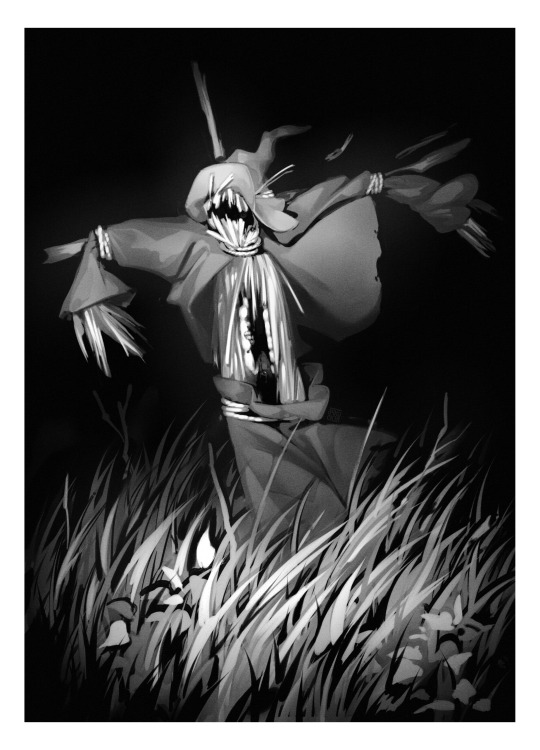
it's hans trapp! from drawfee! hans trapp the straw crab!
#cw: scopophobia#ask to tag#I sorta thought I'd draw all three of the thangs mentioned in the latest drawfee ep but ultimately only hans trapp hitted for me#its funny to hear abt that guy in the video nodding along and then scrolling down to the comments and seeing alsace people go#yeah no idk what the lore in the video is from we dont know about all that#hans trapp from drawfee <3#there Is supposed to be a companion piece to this with hans in his knight armor scuttling in the forest crab style#I just think dunmeshi hit the jackpot with that one. yeah a set of plate armor can be a crab. I think thats cool#ultimately I couldnt really mentally justify it so I just did this one but knight crab lives on in my brain#hope u guys can catch some briscoe park vibes from this bc I have been so normal abt that style of photography recently#at this point every value sketch on black I do is in this style lmao. Im not complaining but I do worry just a little bit abt#how sustainable it is. actually no who gives a shit I will do this until I stop and that's the way to go babey <3#holidays for u guys. one more month for me#u guys have fun! hans trapp will be there.
40 notes
·
View notes
Text







The Wandering House, Nendaz, Switzerland - Lionel Ballmer
#Lionel Ballmer#architecture#design#modern architecture#building#interiors#minimal#house#house design#concrete#modern#contemporary architecture#cool houses#beautiful design#timber#timber cladding#mountains#swiss alps#landscape#village#stairs#concrete floor#windows#living room#swiss design#design blog#interior decor inspo#green#sustainable design#architectural
175 notes
·
View notes
Text
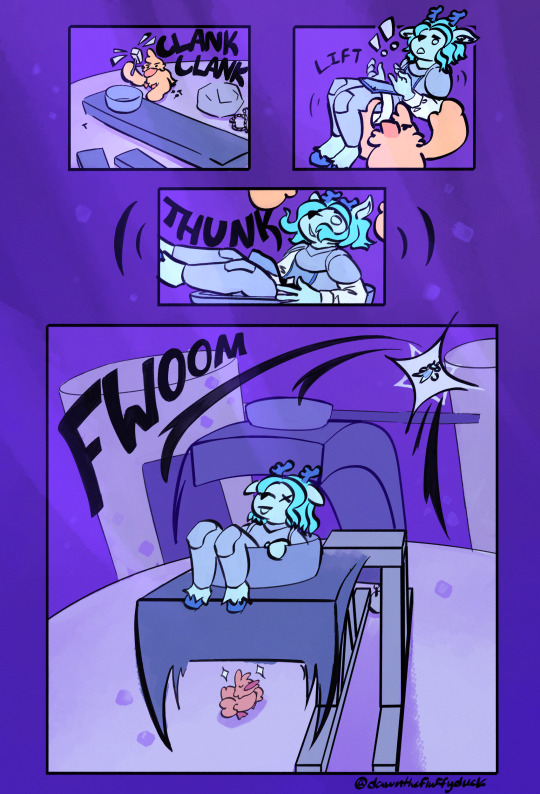
Statement of intent
(Stranger!Noelle is from Looking Glasses by @ferronickel - check it out if you haven't already!)
#deltarune#deltarune comic#looking glasses#fanart for a fancomic#stranger!noelle#this was intended to be done a long time ago for the view-count milestone for the LG website but uhh#school happened#anyway I got it done :D#my passion for throwing ghost-colored deer out of a large projectile-launching mechanism has sustained this whole time#if not grown stronger#i keep saying I have all these projects i'm starting that i never update; let it be known that they will get worked on... eventually lol...#this was fun to do!#i half treated it as a color study and half as a “this line brush is pretty cool how thick can it go” sort of thing#answer: didn't matter because I kept it small anyway and did all of the black fills by slowly coloring things in#was able to keep the pen texture in stuff like the lettering by doing that which was pretty fun#not really noticeable zoomed out though#anyway enjoy :D#here's to manifesting this fun experience for susie to enjoy for herself
30 notes
·
View notes
Text
Shirai and Posuka's answers to fan questions: pt 2
Reminder that the English answers posted by the officials are machine translated, so there are some inconsistencies (like "About Never" being the auto translation for "TPN", some mess-ups between first and third person pronouns in the answer about Ayshe etc.)
Pt. 3 will be the final part!








#the promised neverland#posu loving ch. 152 to draw is now of my new favorite information#the details about GV was cool I'm glad it was touched upon#also the background behind ayshe's name haha#is shirai forever going to keep it from us why rats poisoned norman at lambda or should we be still hopeful for an elaborate side story#the next batch will answer off-series questions so FINALLY he may answer what's his plan for the series's sustainable future#and whatever he's up to#yakusoku no neverland#tpn emma#tpn norman#tpn ray#tpn ayshe#goldy pond#kaiu shirai#posuka demizu#mine
49 notes
·
View notes
Text
253 notes
·
View notes
Text
Made a doodle/comic of another BMB scene I love!
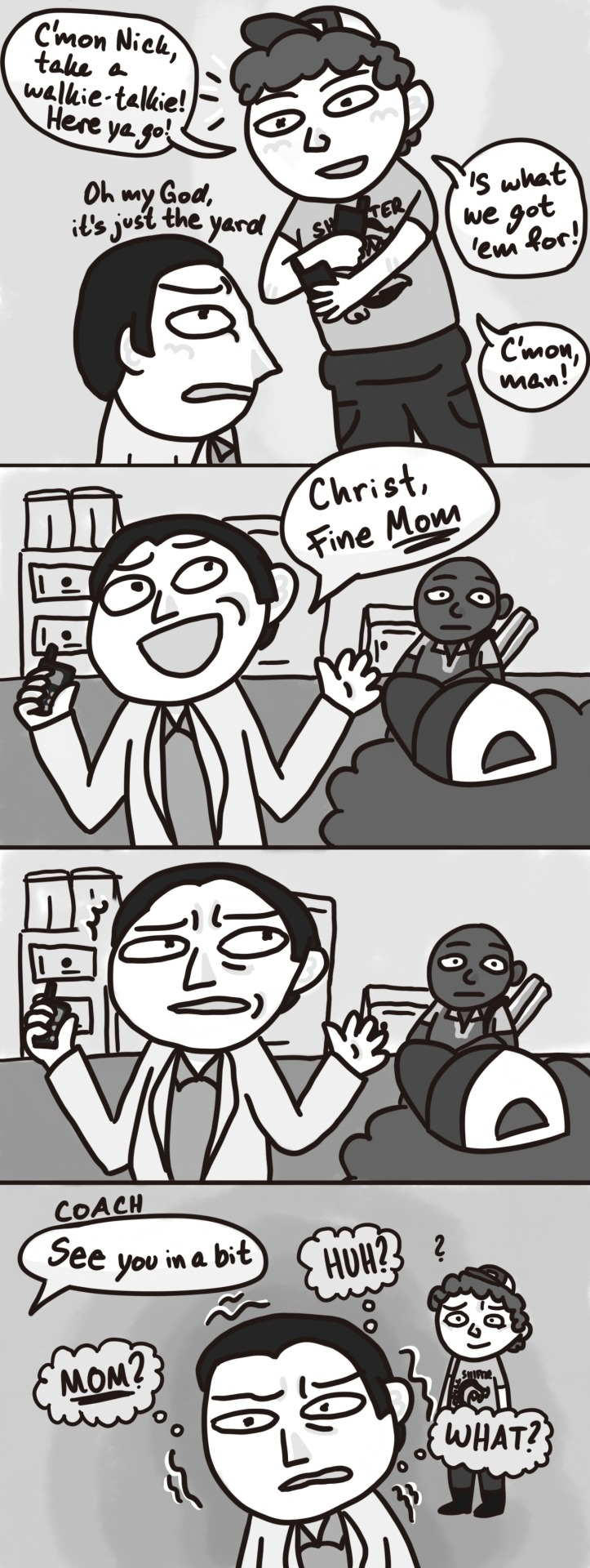
#blind man's bluff#ladyredms#l4d2#if i made a doodle for every bmb scene i love it'd basically be the entirety of bmb i think LMAOO#nick being corny sustains me#seeing him feeling comfortable enough with the group to let himself be a dweeb and drop the cool macho guy facade actually KILLS me#like his cat-astrophizing pun UGHHHH it's such a lame joke it made me so happy#i have such a soft spot for nick omg i love all the characters so much but he's just written sooooo insanely well
58 notes
·
View notes
Text
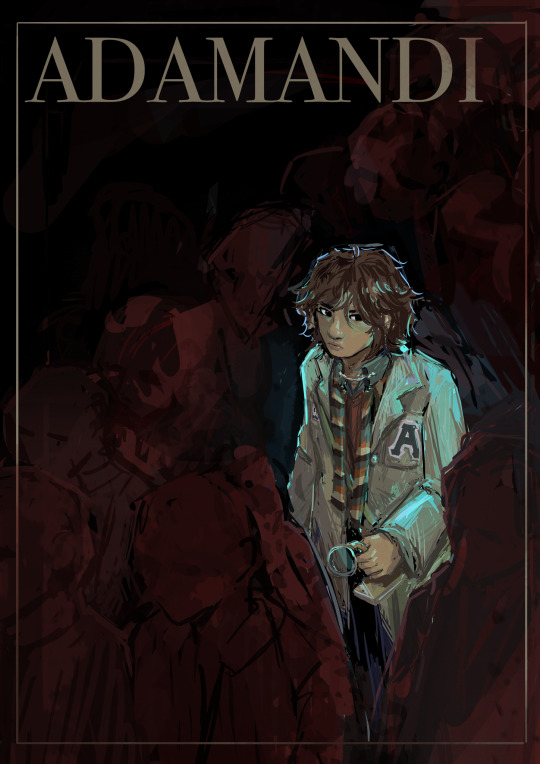
no one would notice if i ever vanished // if bodies could sustain // this never-ending army // like blood pumping through a vein
(click for better resolution!)
:OOO hello. anyway since these are all posters i'd have in an ideal world or smth and i'd like to store the high res versions somewhere,,, here's the google drive folder for them? hehe ''
close up!
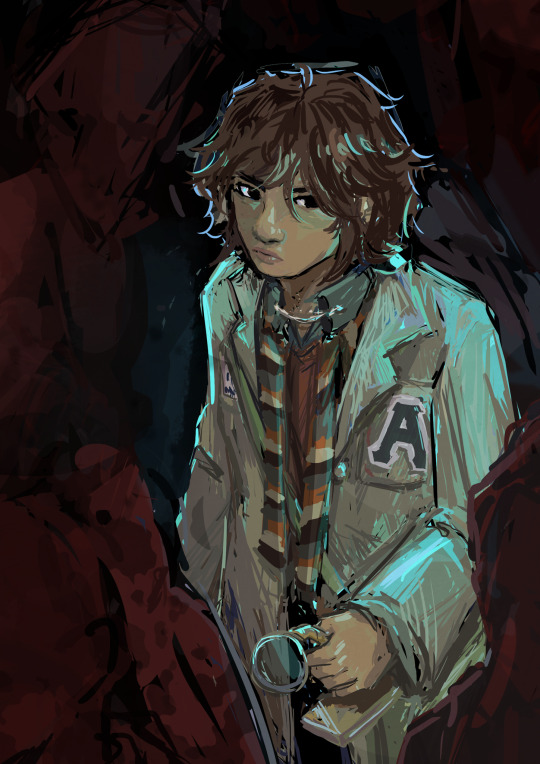
#adamandi#vincent aurelius lin#i'm back with the posters! or smth! idk!!#i'm maybe just a bit obsessed with vincent. such a Character.#where can i run is sustaining me single-handedly through this exam season (<- has cried thrice in the last two days; alas; but moving on)#my stress response was that in a fit of apathy i shut myself down from academia and stopped to paint this#six hours total? on this funky little thing! had to push myself to finish the magnifying glass but!! looks so cool. i'm impressed with my e#fun fact: all the shades are hand-coloured. aka everything is digitally hand painted hooray!! i havent painted for a long time (ish)#smth about this musical makes me want to paint. it's very lovely that way#it's also a miracle i haven't gotten carpal tunnel or any wrist injuries so far... i'm a lucky person! hooray#i had so many thoughts to ramble about and now i don't recall any of them.#-! about this piece: inspired specifically by that one line that i doodled in the margins of a math practice last night#the diagonal slant was very. thinky. the rendering and angle were kinda contradictory to do but it's fineeee (draft was diff. pov)#i liked the red abstraction. and the way that people (misc) gave same vibes as red blood cells.#green for vincent because contrasting colour!! considered a spotlight that was more obv bc. again theatre lighting is so cool. but that was#a bit too literal? i think. so just fun little highlights. no one look at the accuracy of anything here though.. shadows do Not do this#also like hehehe lin. forest. forest of people. i really liked thinking about that. hehehe#i didn't know the font to use!! or quote!! so i slapped on the name of the musical and called it a day... the blank one is in the google-#-folder if you want to add your own stuff :') also also i wasn't sure about cropping at all. so again high res in google drive link#which is under the keep-reading sign! kind of a choose your own adventure because i'm lazy :3#ajhshdhfhfhfhf i think i've been fuelled by the tags under each post so far. so intensely. so very nice.#also when the cast or creators drop fun facts... serotonin right there.. they're all so nice waaagh it's so cool that they like my stuff ><#<laughs> really grateful that the whole fandom's so sweet <3 thank you for your support TvT#alright!! off to mess about with chemistry. jiayou me.#oh yes. a post script about the cropping crisis: i wasn't sure how small i wanted to make him. in proportion to the crowd. so if you see it#on mobile ig it's tiny and on laptop it kind of makes sense ...
149 notes
·
View notes
Text
Didn't wanna derail a post I saw this morning, but it had me idly wondering - do you think there's a bowsario fic or art piece out there where Luigi's the overprotective hardass about the relationship, similar to Mario in some bowuigi stuff? I know there are fics where Peach is bent out of shape about it (usually from a political standpoint).
I know this idea comes up against the general older/younger brother stereotyped dynamic, and Luigi's wariness of Bowser in general. But c'mon he should get to push past that at least once to give Bowser a bit of shit about whether he's good enough for Mario or not. As a treat. Because it would be funny (or at least I think so).
#like it doesn't have to be a sustained *thing*#he could give a shovel speech (interrogation). Do a little spying. Maybe rig something embarrassing to happen as a test#leverage those sweet sweet 'annoying younger brother' points#or maybe it can be less comedic I'm just comedy-brained#or maybe he can be a yandere I dunno lmao#Actually that reminds me of a yandere Mario fic I saw once#wasn't strong enough to read it because it was mariocest but#based on its comments it seemed pretty cool! And based on the first paragraph or two it seemed really well written!#waugh maybe I should bite the bullet and actually read that fic the proposed dynamic seemed so fun...#mlv.txt
32 notes
·
View notes
Text
How to survive the heat
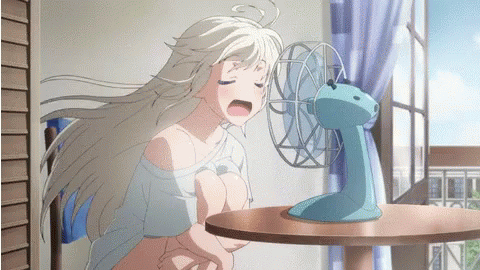
Okay, let me talk about something else.
The climate is changing and it is getting hotter. The summers especially are getting hotter and hotter by the year and a lot of people are struggling with it.
As my American friends keep reminding me: The US - at least those areas, that have always been kinda hot - has usually ACs for most buildings. But someone sitting in Germany I can guarantee you: Most of us do not. At least not outside of commercial buildings like shopping malls and office buildings.
And still, we have temperatures over 30°C - at times going up to 40°C (that is like 86° - 104° in freedom units) - and somehow have to survive in here. So, as someone sitting in an attic flat with no AC in sight, let me talk survival.
Why heat is dangerous
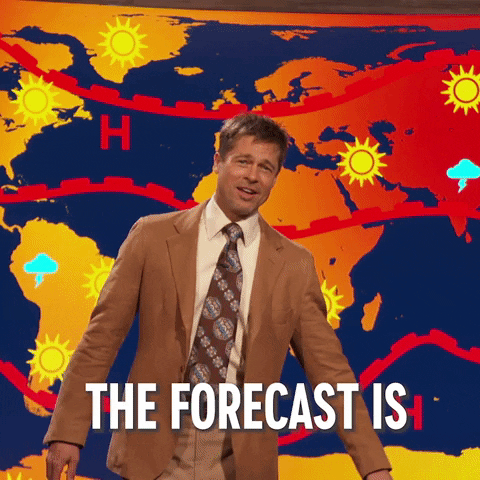
Let me quickly talk about heat and why it is dangerous to us. And let me make it clear: Yes, heat is dangerous. Heat usually kills more people than any other type of extreme weather. Because while you can protect against most other weather, the heat is not that easy.
Our human fleshbags usually function best around 37°C (which is like 98.7°F) and to keep itself at around that temperature. When we are cold, our body burns energy to warm itself up. When we are hot, we produce sweat so that our bodies can cool of via evaporation.
The issue is, that our bodies are only able to do that in certain temperatures effectively.
And if we cannot cool off, our body will slowly fail. Additionally we might sweat so much, that we loose too much water through sweat, our bodies might shut off, too.
Just a quick graphic here. Just to make you aware. Because heat is dangerous.
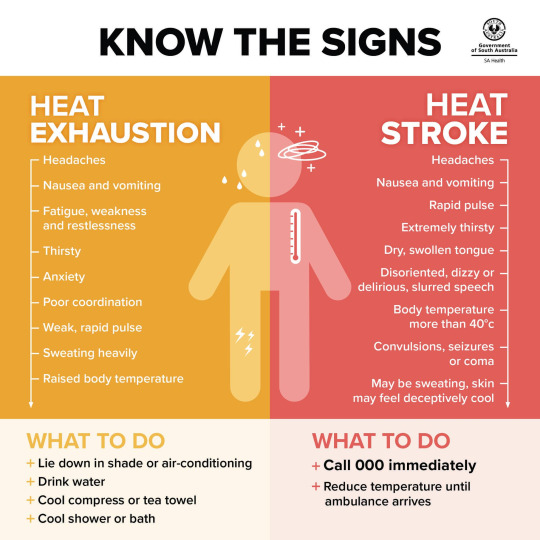
So, let us talk about something.
How to survive the heat without an AC?
Let me talk about my best friend during the summer heat: The fan. With that I mean the nice electric fan that keeps the air moving. Yes, it burns energy and that sucks, but with the air moving, our sweat can better evaporate, hence cooling us down.
Another thing that might help as well, is a device removing air humidity - because this, too, helps with sweating.
Then, of course, there is the good one: Air out your apartments early in the morning or throughout the night. When it is still cool. Then close up the windows during the day and close and curtains and blinds. If you do not have blinds, you might consider putting something against the windows from the outside. I personally use medical foil blankets, that are made to keep temperatures regulated. But please, please, if you do that: Put them up outside. Because otherwise it might harm the glass of the window. (And yes, sadly I have to remind you, too that you need to check with your landlord if this is okay.)
Another thing that might help you: Fill bottles with water and freeze them. Then put them up in the highest place in your room. This can lower the temperature in your room for a couple degrees. It is a very easy hack that works quite well.
Now, you might have heard about that drinking cold drinks is bad and that instead you actually should drink hot drinks. The science behind it is basically, that cold drinks do kinda cancel themselves out. Yes, cold drinks and ice cream cool down the inside of the body, but with it, it will also tell the body not to sweat. Because of that, you win nothing, but you also loose nothing. The natural temperature regulation gets stopped for a while, but for the same while your body gets cooled by the cold drink. So... It's alright. Do it the way you like. And yes, even though sweating is a good and healthy thing in the heat... It also kinda sucks.
Most importantly though: Drink. And drink something non-alcoholic. (Because alcohol dehydrates the body.) Other than that, it really does not matter what you drink. If it is hot or cold. Just make sure you drink about 2-3 liters a day. To make up for the loss of water through sweating.
The last tip I have is not good for the introverted. But... You might wanna consider spend your days in a place that is climatized. I usually sit in the office even on my off days, because it has a passive cooling system (yes, fancy sustainable stuff even!) and during the weekends I often go to the university library, because it is nice and climate controlled there.
Would I love to lounge around at home instead? Yes. Yes, I would. But... Beggers can't be choosers. And even my autistic ass prefers sitting in the library to having a heat stroke. Because yes, I had a heat stroke once. I cannot recommend it.
So, that said: Stay chilly.
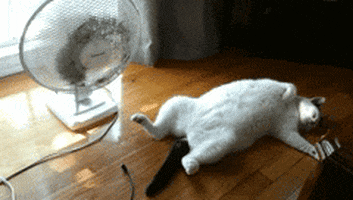
#summer#heat#heat stroke#heat exhaustion#cooling#sustainability#keeping cool#survival#tips#climate change
160 notes
·
View notes